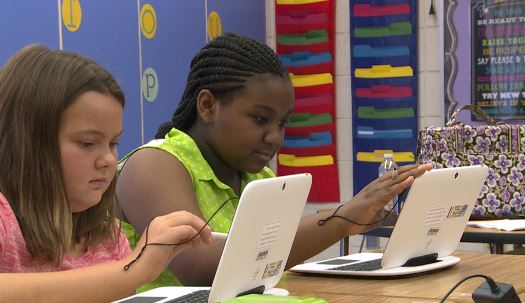Based on work undertaken during his doctoral studies of reading and writing, a dissertation about writing across the curriculum, and experience teaching writing courses, Dr. Rogers leads participants in reading real student essays and testing an essay-marking procedure that combines the speed of rubric-based marking with the close marking that shows students their writing problems—and how to write better. Participants also see how to connect their feedback to new-media products that make it easier than ever for students to learn to write clean surface grammar. (2 hours)
How Children Learn to Spell—And How We Can Help Them
How Information Technology (IT) is Transforming Learning and Teaching
A multi-media exploration of the stunning advances in software and hardware that are quickly enhancing the intelligence and language arts skills of the children and teachers who access and use these tools. Toys for preschoolers (e.g., International Playthings’ dedicated computer Learn to Write ABC), on-line dictionaries that pronounce words in natural-sounding human speech, peer-to-peer software, sophisticated on-line databases, wireless high-speed connections to the Internet, e-books, educational apps for tablets and smartphones, Web-based instructional materials, even procedures to create personal prosthetic memories—are transforming learning and teaching so profoundly that techno-holdouts are quickly falling behind techno-savvy learners and teachers. This presentation is particularly effective as the kick-off or culminating activity in a course. (2 hours)
A rational approach to reading diagnosis
Teaches classroom teachers a problem solving procedure to diagnose quickly the reading performance of every student in a class. Teachers learn how to use widely available and inexpensive reading inventory materials, including the DRA and PM Benchmarks, to assess only what is essential to learning how a student reads now and to adapt instruction to promote greater reading proficiency. Workshop participants report leaving the presentation confident that they can diagnose their students’ reading performance. (3 hours)
How children learn to read and write: how we can help them
A review of contemporary research in literacy instruction, including recent Ministry of Education reports, such as the Early Reading Strategy: The Report of the Expert Panel on Early Reading in Ontario; and Think Literacy Success Grades 7-12: The Report of the Expert Panel on Students at Risk in Ontario, and describes how children develop from not being able to read at all to reading proficiently. Dr. Rogers draws on his doctorate in reading education and his experiences as a literacy educator, psycho-educational consultant, and early literacy expert on the Ministry of Education Turnaround Schools Program. His well-developed slide presentation is used to illustrate specific, concrete teaching materials and procedures for helping children learn to read and write their first words, develop phonemic awareness, conduct phonic analysis, comprehend sophisticated reading material, and read and write to learn content subjects at secondary school. Parents and teachers report that this presentation gave them a clear understanding of how to nurture literacy from preschool to grad school. (3 hours)
What we really need to know about how children learn to read
Geared to early years educators, this half-day workshop offers a quick tour of the professional literature to lay a solid foundation of research-based practices. De-bunking educational fads and popular myths, this workshop empowers the educator to develop effective reading strategies based on readily available books as well as ideas for inexpensive hand-crafted materials.
You’re a teacher. You should write better.
It can be infuriating to hear this. Let’s bullet-proof our writing!
Some members of the public love to point out teachers’ spelling and grammar errors on report cards, correspondence, or newsletters. No professional group is scrutinized as closely. In this light-hearted workshop, teachers anonymously test their surface grammar prowess, briefly refresh their ability to write standard Canadian English and observe a formatting style, and learn about powerful print and software tools that can improve their observance of the mechanics of writing. Even if you are confident of your spelling and grammar prowess, this workshop will help you refresh your knowledge of the conventions. (2 hours)






